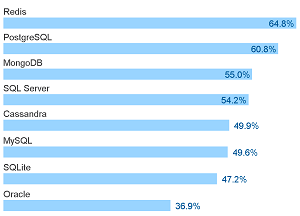News
Postgres-as-a-Service Now Available on AWS Cloud
- By David Ramel
- April 3, 2017
Postgres, an open source database popular among data developers, is now available on the Amazon Web Services Inc. (AWS) cloud as a Database-as-a-Service (DBaaS) offering, EnterpriseDB announced today.
The company said its new EDB Postgres Ark service, designed to simplify Postgres deployments in the cloud, can now be found on the AWS Marketplace.
It's based on the company's EDB Ark DBaaS product, which when launched last year in version 2.0 worked only with the Red Hat OpenStack platform, promising more deployment options in the future. That came to pass with the announcement of the ability to target the Amazon cloud.
"EDB Postgres Ark provides operational administrators with control of a Postgres 9.6, 9.5 or 9.4 based DBaaS for their organization while freeing DBAs and developers from the rigors of setting up and managing modern, robust database environments," reads the item description on the AWS Marketplace. "Within minutes, EDB Ark configures a single instance or highly available database cluster that includes built in load balancing, automatic failover, secure data encryption, user scheduled backups, point in time recovery, and automated elastic scale out and storage."
Postgres (sometimes called PostgreSQL), according to Wikipedia, "is an object-relational database (ORDBMS) -- i.e. an RDBMS, with additional (optional use) 'object' features -- with an emphasis on extensibility and standards compliance."
The database is a favorite with developers, according to the huge, comprehensive developer survey recently published by Stack Overflow. In that study, it was just edged out by 0.1 percent for the No. 3 position in the most popular database category, and ranked No. 2 in the "most loved" category.
 [Click on image for larger view.]
No. 2 "Most Loved" Database (source: Stack Overflow)
[Click on image for larger view.]
No. 2 "Most Loved" Database (source: Stack Overflow)
According to EnterpriseDB, its Ark DBaaS framework lowers the risk and costs of setting up and configuring Postgres in public, private and hybrid cloud deployments, facilitating DevOps implementations by acting as a bridge between development, operations and DBAs to boost rapid application development.
Other benefits listed by the company include:
- The option to manage deployments of PostgreSQL and EDB Postgres Advanced Server in multiple clouds, thus retaining external flexibility for system uptime and workload optimization.
- An easy-to-use console and APIs that allow for the quick creation of a range of Postgres deployments, from single instance developments and boxes to production clusters immediately set up with high availability, automatic backup and recovery, load balancing, and basic monitoring and management. Users also have the option of encrypting every cluster to provide an environment that is both secure and transparent to the connecting applications.
- When used with EDB Postgres Advanced Server, the EDB Postgres Ark framework also provides database compatibility with Oracle and offers dramatic cost savings and competitive advantages.
"With EDB Postgres Ark, AWS users now have greater flexibility and control to deploy the EDB Postgres database platform into hybrid environments," exec Marc Linster said in a statement. "EDB Postgres Ark simplifies the process of provisioning robust Postgres deployments, while taking advantage of the flexibility and power of cloud computing."
The AWS offering is delivered on a 64-bit Amazon Machine Image (AMI), running Linux/Unix and CentOS 6 and requiring the use of EC2, EBS, S3 services on the Amazon cloud. Pricing is based on a multitude of options, the full gamut of which can be seen in the AWS Marketplace entry.
About the Author
David Ramel is an editor and writer at Converge 360.